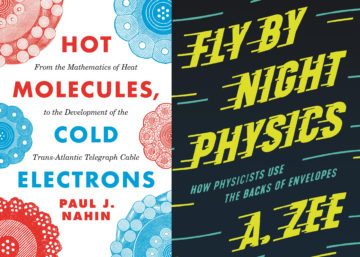by David Kordahl

James Clerk Maxwell, whose theory of electromagnetism occupies the same physics pedestal as Newton’s theory of gravity, was by all accounts a good-humored and generous man, and a fairly confusing lecturer. Here is a story about Maxwell (admitted to be apocryphal in the math notes that recount it) that suggests something of his character:
Maxwell was lecturing and, seeing a student dozing off, awakened him, asking, “Young man, what is electricity?” “I’m terribly sorry, sir,” the student replied, “I knew the answer but I have forgotten it.” Maxwell’s response to the class was, “Gentlemen, you have just witnessed the greatest tragedy in the history of science. The one person who knew what electricity is has forgotten it.”
This anecdote—this joke—is improved for those who know Maxwell as the preeminent early theorist of electricity. After all, if Maxwell didn’t know how to define electricity, what hope was there for his students?
At risk of over-explaining it, this anecdote gestures toward a piece of insider knowledge. You don’t need to know everything to construct a mathematical theory, and mathematical theories can be more robust than the systems they have been constructed to describe. As I’ve written elsewhere, mathematical techniques that are useful in one area of science tend to be useful in in other areas, not as an exception, but as a rule. Read more »
